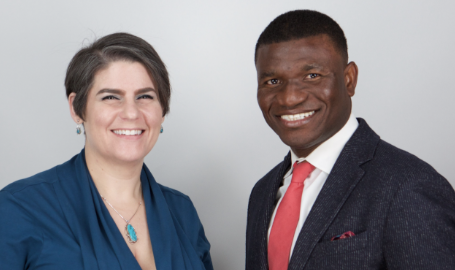
Vicarious Trauma and Our Patients and Clients (Self-Study)
Self-Study
KEY INFORMATION:
This course is eligible for 2 CEUs for Licensed Social Workers, Licensed Mental Health Counselors, Credentialed Alcoholism and Substance Abuse Counselors (CASACs), and Psychologists in New York State
For more information about CEU approval, please click here.
Introduction
Is vicarious trauma understood in the way it ought to be so we can prevent or treat it properly? What's the effect of vicarious trauma on a clinician who's already affected by trauma? What can be done? What is its role in the parallel process and how does it compare to Burnout?
If you are a clinician, vicarious trauma is a very important topic for you. If you are interested in preventing iatrogeny and enhancing your work with your patients and clients, while keeping the optimal balance in your life, please join us now.
What you'll learn
At the end of this seminar, you will have:
- Learned the framework of the Socratic Motivational Practice in effectively working with those who are impacted by trauma.
- Learned the Principles, Techniques, Steps, and Do's and Don'ts of the Socratic Motivational Practice in effectively working with those who are impacted by trauma.
- Increased your tools to talking with patients and clients by identifying at least one thing you will start doing differently, at the end of the webinar, as a result of the Socratic Motivational Practice framework.
- Everything you want in one place, including an illustration of how to implement the newly learned skills during our role plays
- Received your certificate by email after your post-test and evaluation are completed.
Who is this for?
This course is for any clinician invested in learning new or honing existing skills to be able to use in dynamic ways to support their patients and clients and to end suffering.
Here's what attendees have been saying about SWEET seminars:
"Dr. Sidor explained this topic and techniques in an effective manner and engaged all participants. I found this to be an interesting topic and enjoyed how we were able to utilize such tools with present day situations." - Rosalind, LMSW
"Dr. Sidor was a great presenter, very organized, explained everything clearly. He broke more technical terms in layman's language and also explained how to explain things to patients/clients in easier language. It was all very well organized, presented, and Dr. Sidor was very engaging and has a good sense of humor." - Myrena, LMSW
"I felt that practicing the technique with the facilitator was very helpful both personally as well as learning how to teach the process." - Elayna, LMSW

Join Us Now!
Your Facilitator and Co-Facilitator

Mardoche Sidor, MD, is a Harvard-trained Quadruple Board Certified Psychiatrist, Assistant Professor of Psychiatry at Columbia University, School of Physicians and Surgeons, trained in and taught all major psychotherapeutic modalities, including and not limited to CBT, DBT, Family Systems, and Psychodynamic Psychotherapy. He is also the author of 11 books including Journey to Empowerment, Discovering Your Worth, The Power of Faith. and, The Art of Living. Dr. Sidor has worked both as a primary care physician and Medical Director in three different settings, including a Chief Medical Officer of the Center for Alternative Sentencing and Employment Services (CASES). He is a main facilitator for the SWEET Institute. His 11th book, entitled, NLP for Clinicians is now available to the public.
Karen Dubin, PhD, LCSW, is a Columbia-trained Social Worker with wide clinical, teaching, and supervision experience. She also has a background in management, mentorship, and leadership that spans more than 20 years. Her added passion is in advocacy and coaching. She has previously held Executive level positions, and two other directorships in different organizations. She is currently Adjunct Faculty at Columbia University School of Social Work and Adelphi University School of Social Work. She also maintains a private practice, provides supervision, and clinical and management training. She is also a personal and executive-level coach. She is a main facilitator for the SWEET Institute.
SWEET Curriculum

